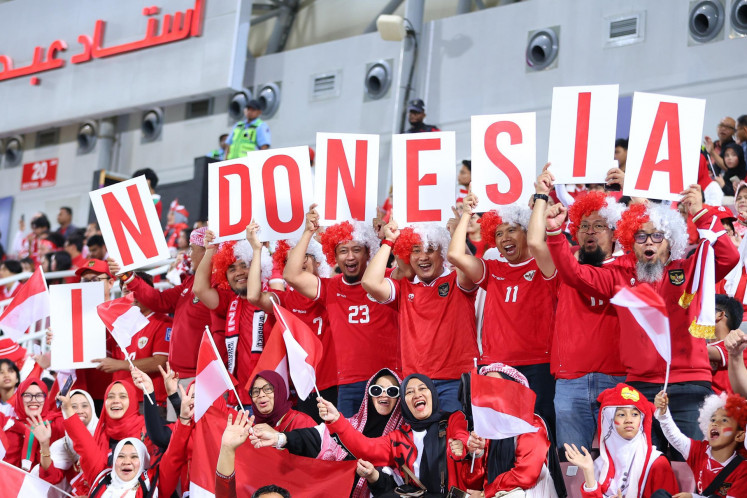Coup in Turkey has US fingerprints on it
If one looks at all the military equipment strewn about after the recent coup attempt in Turkey, it is overwhelmingly US hardware: tanks, M-16s, helmets, kits and F-16s
Change Size

I
f one looks at all the military equipment strewn about after the recent coup attempt in Turkey, it is overwhelmingly US hardware: tanks, M-16s, helmets, kits and F-16s.
Despite US Secretary of State John Kerry’s many protests that the US had no involvement in this coup, the stakes were too high to be ignored and odd patterns have seemingly emerged from other countries that draw comparisons.
The US controls a large NATO airbase at Incirlik that still houses “live” nuclear weapons, in the southeast of Turkey, near the Syrian border, where much of the instability is. Turkey is fighting Kurds and Islamic State (IS) movement, but not in the order that Washington has approved or desired, an asymmetry exists.
The leader, Prime Minister Recep Tayyip Erdogan, has been antagonistic to Washington with his dictates, an initial refusal to allow attacks on IS from Turkish soil, and demands for return of an elderly opposition cleric in the US. Essentially Erdogan, while elected by 52 percent of Turkish voters, has been biting the hand that orchestrates.
Recently Thailand and before that Egypt had successful military led coups that had toppled in both cases, duly elected governments. US hardware and realpolitik seems to have been behind both episodes. Outside of Israel, Egypt, is the second largest recipient of US aid in the world, receiving around US$2 billion a year. By this we mean largely military aid: hardware and training in how to use that hardware.
The US government seeks moderate Islamic governments at best. Anything demonstrating a return to conservative Islamic rule or Sharia law is simply not tolerable to the US, especially in an area with so many tangled US alliances and having the largest “sweet” oil reserves in the world. Whether the governments there are elected or not seems to be irrelevant.
This also puts a serious test to the US commitment toward real, one man one vote, democracy. It seems more to be “democracy with approval” or a controlled consensus.
In the case of Thailand, a nearby ASEAN country, and with some parallel to Indonesia in terms of investment and export economy, an elected Red Shirt government under Thaksin and later his sister (that tilted Marxist in doctrine) became a nuisance to the US with its budding relationship toward China. This could not be allowed to continue.
Thailand has been a useful ally for the US since 1965 when it was used as a staging ground for bombings in Vietnam and Cambodia and a way-station for US troops R&R. This long-term relationship might be at stake under this drift by the Red Shirts.
A military coup ensued, and long-time US ally Yellow Shirt General Prayuth Chan-Ocha took power. He has been quick to suspend civil liberties, install curfews, and decided that he himself would push a new Thai constitution, that he wrote.
While publicly praising Thailand’s relationship with China in the media, it is noted he has been circumspect about his dealing with it, recently delaying a long planned and China financed toll road project (that has irritated China). In short, a rising China represents an offset to long held US sway in the area.
Indonesia should not underestimate the Washington consensus by any means even today. It was complicit in installing an unelected military leader in Indonesia in 1966, who weathered nearly 32 years in power until deteriorating economic conditions in Indonesia forced him out (that again with US soft-power intervention).
In 1975, Indonesia invaded East Timor as part of an annexation. This was done with the approval of Australia, a near ally and regional power, but the record has also shown that Australia was itself acting under the greenlight of then US president Gerald Ford and his secretary of state Henry Kissinger.
Indonesia now has a non-military president who is under some constituent pressure to honor Islamic party demands for social change in established areas, yet Indonesia also has large US investments, particularly in the energy industry (oil and gas), significant aid programs (such as MCC, US AID) and on-and-off US military assistance in particular for training and intelligence sharing.
It is not only the US but also their alliance free market partners: UK, Japan, France, Germany and now even Korea. All have significant operations in Indonesia, not only commercial, but also for “development”, educational, energy and building civil society. In short, much is at stake.
If one considers recent events in Turkey, Egypt and Thailand, a message is being sent that tectonic shifts in power, (the rise of China, sharia law, etc.) elected or not, may not be welcome by established “free market” order or even “free” countries seeking influence. Indonesia should take notice of this.
The Washington consensus may be demonstrating that if soft power does not work, interference at the least and hard power at worst is still very much on the table.
In a world of political upheaval that is changing established orders, “democracy” may be a nice ideal but no longer “a priori”.
__________________________________
The writer is an associate professor and public policy adviser for the School of Government and Public
Policy in Jakarta.









